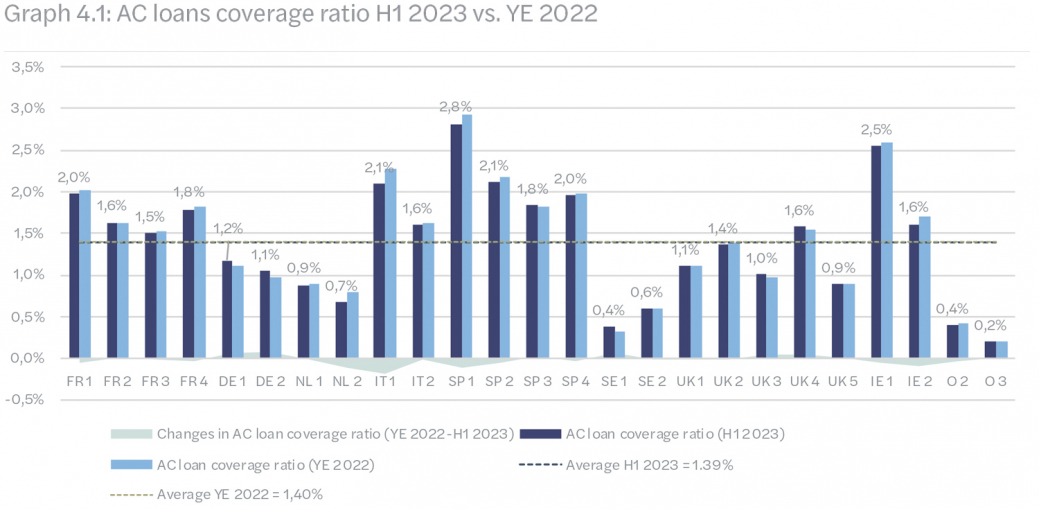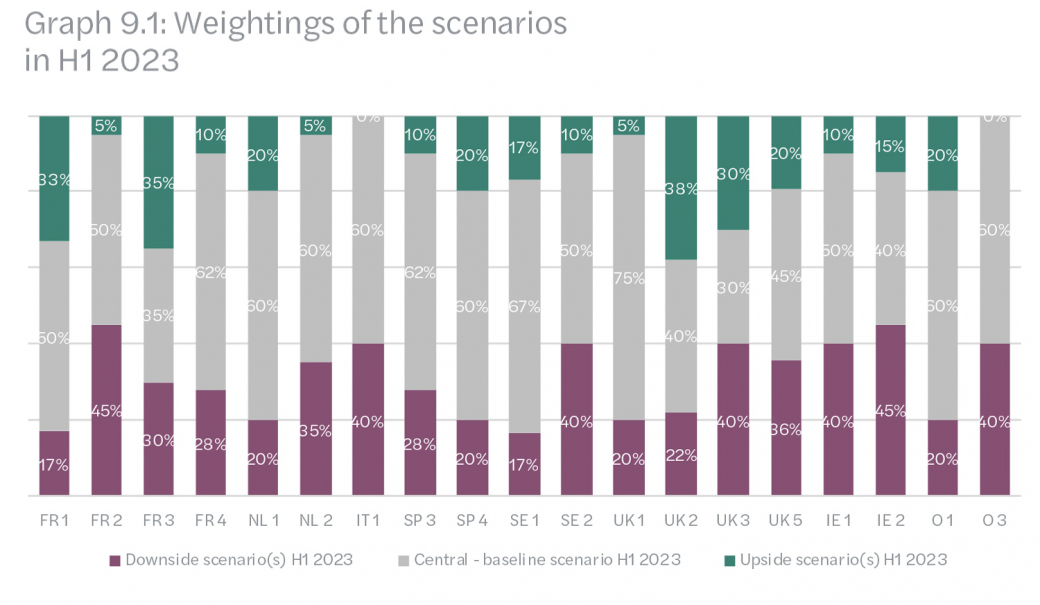Over the past three years, the banking sector has had to endure numerous crises, including Covid-19 and the war in Ukraine. What do the 2023 interim results of the 26 largest banks in Europe indicate about the impact on Expected Credit Losses (ECL) in this unusual environment?
This benchmarking study analysed the 2023 interim reports of 26 banks in 11 European countries, to better understand the impact of financial turbulence and ongoing geopolitical crises on their Expected Credit Losses.
The study mainly focuses on the ECL-related impacts, with key findings on:
- ECL charge impact of H1 2023 on the profit or loss and ECL allowances.
- Changes in coverage ratios and allocation between stages.
- Post-model adjustments/overlays.
- Forward-looking information.
- Liquidity risk in banking sector.
Download the Financial reporting of European banks – benchmark study H1 2023
In our analysis, we have focused on the comparison of AIB and Bank of Ireland with their European peers. The key observations from the Irish perspective are presented below:
- ECL coverage ratio of Irish banks is above the average observed in the study and is similar to Spanish and French banks.
3.2.2 ECL Coverage ratios of AC loans (H1 2023 vs. YE 2022)
- Different approaches to post-model overlays are observed in Irish banks (41% vs 3% of total ECL is driven by the overlays). These figures remained quite stable in comparison to YE 2022.
3.3.1 Weight of cumulative overlays in AC loans ECL allowance
- A conservative approach to scenario weightings is observed in Irish banks – 40% and 45% weights of downside scenarios are higher than for most of the peers.
3.4.2 Weightings of macro-economic scenarios









